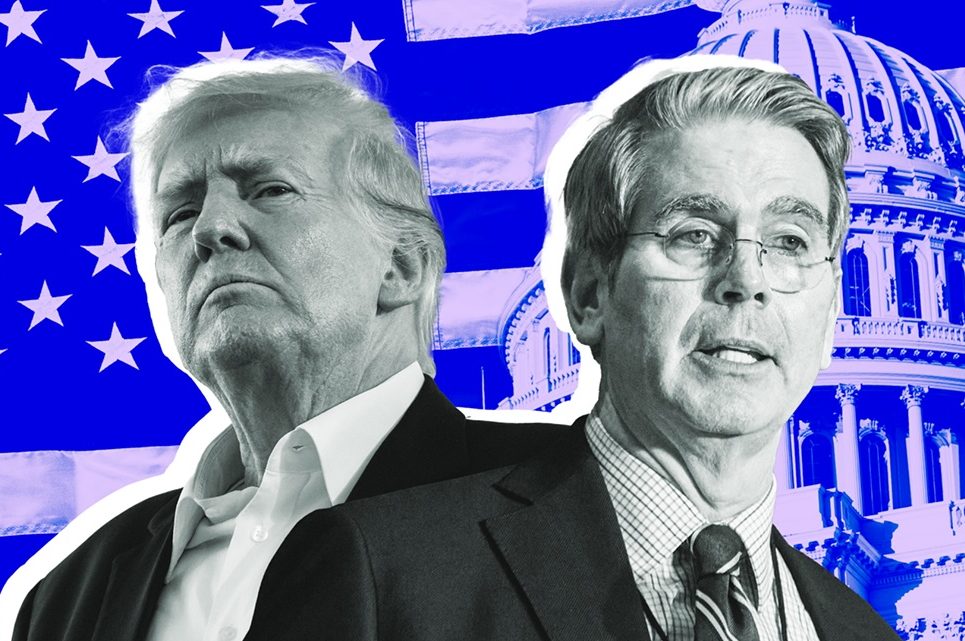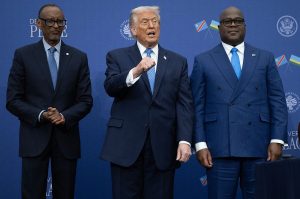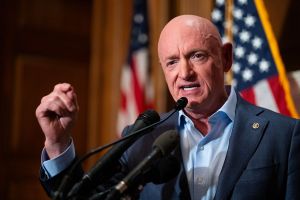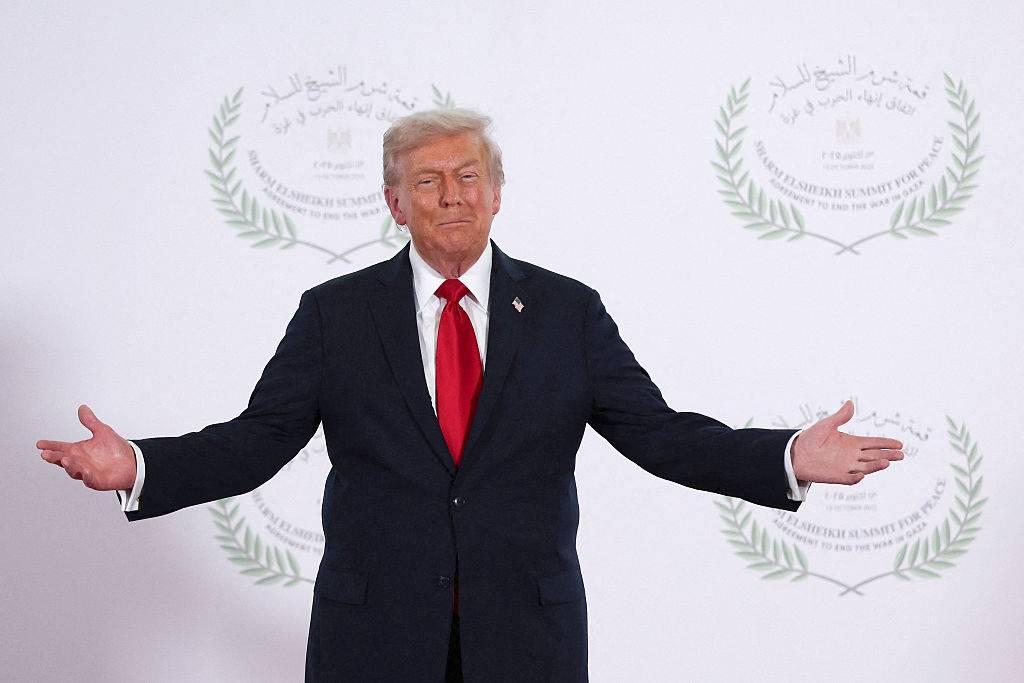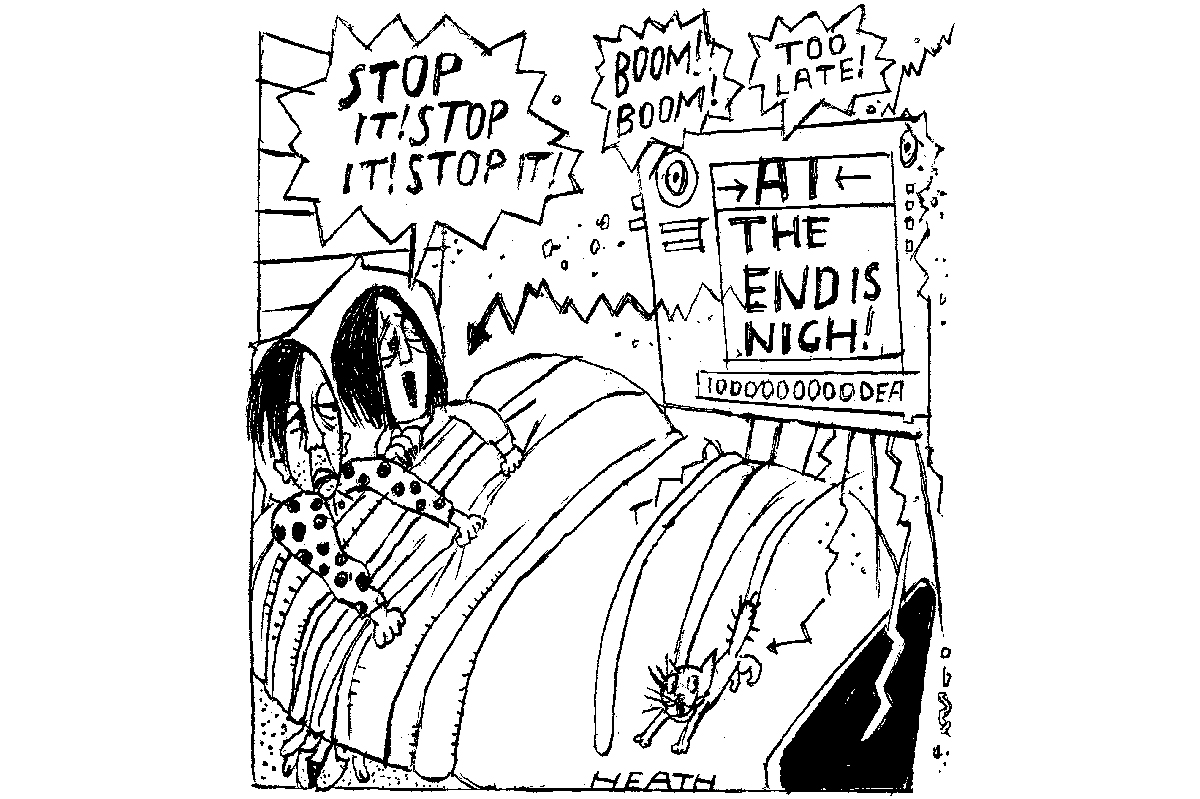How rare it is to be given a second chance. That’s what the American people have handed Donald Trump.
His second shot at the presidency means avoiding past mistakes, which in Trumpworld means finally harnessing the full power of the state. Even in the last year of his first term, Trump was struggling to fill all the political appointment vacancies he had at his disposal. This was the consequence of never developing a real plan for governing that went beyond chanting “Drain the swamp.”
Elon Musk talked down Bessent as the ‘business-as-usual choice,’ but that’s what markets are looking for
This time round, things are going to be different. Trump is announcing new departments and staffing them before he even re-enters the Oval Office. We are about to see a methodical revolution in Washington DC, which will involve taking an ax to state spending, as well as announcing a sweeping set of tax hikes, in the form of tariffs, months ahead of implementation.
The world watches nervously. Clare Lombardelli, a deputy governor at the Bank of England, issued a warning this week, suggesting such measures are “not a good thing” for any country, “whether they are tariffs or regulatory or others.” Her very political intervention comes as Trump announces plans to impose a 25 percent import tariff on Canadian and Mexican goods from day one (with an additional 10 percent on Chinese imports). He has appointed Jamieson Greer as his trade representative to help him do it. Greer, the protégé of Trump’s former trade chief Robert Lighthizer, is committed to returning manufacturing and industry from China back to America at practically any cost.
It’s a cabinet full of outsiders and rebels in practically every department — apart from one. After weeks of deliberating over who would fill the top role in the treasury department, the president-elect has chosen the hedge-fund billionaire Scott Bessent. The appointment gives us our first look into how Trump will approach the economy in his second term. In most areas he is opting for disruption, but his pick for this department suggests a more restrained approach.
Elon Musk talked down Bessent as the “business-as-usual choice,” but that’s what markets are looking for after four years of Bidenomics. Stocks and bonds rallied when the appointment was announced this week. The markets have reason to think that his fiscal conservatism will balance out the president-elect’s more protectionist impulses.
Bessent made his name on Wall Street by betting against currencies: most famously by working on George Soros’s team in 1992 when the investor made $1 billion in one day by shorting the pound. He went on to found his own firm, the Key Square Group, and became known among his peers as a student of history and economics (he taught at Yale briefly), leading him to believe that the only way to run an economy is to go for growth.
He is a disciple of the late Japanese prime minister Shinzo Abe — whose “Abenomics” involved a three-pronged approach to fixing the economy. Bessent proposes his own “3-3-3” approach: get the economy growing by 3 percent by deregulating, slash the annual deficit to 3 percent of GDP with spending freezes, and produce so much domestic energy supply it amounts to three million barrels of oil each day. This is not a protectionist agenda; it is closer to free-market fiscal hawkism. Apart from spending cuts, it is also the approach Trump took in his first term.
Much has changed since then. In 2016, Trump was weaker and his cabinet appointments needed to calm and reassure the party. In 2024, his selection of vaccine-skeptic Robert F. Kennedy Jr. to run the health department and Fox News anchor Pete Hegseth to oversee the country’s defenses are audacious reminders that he can do what he wants. But as much as Trump loves to rock the boat, he has always been hesitant to take risks with the economy. He talks the protectionist talk, and then cuts tax and deregulates. That was how Trump governed in his first term, and Bessent seems to suggest a return to that agenda.
Still, it took some ring-kissing for Bessent to land the top job. Once a financial backer of the Democratic Party, he has become a vocal supporter of Trump. His Fox News article on tariffs — insisting they work “as a negotiating tool” with other countries — was curiously placed and timed, just as his name was being floated on shortlists.
Trump’s most recent tariffs announcements, coupled with his other appointments, may mean markets recalibrate — especially if it becomes clear Bessent is more inclined to go along with the tariffs than to oppose them. If the incoming administration really does go ahead with double-digit import taxes, he can wave that 3 percent growth goodbye.
The calculation made by many laissez-faire Trump supporters is that these tariffs are threats, not policy — designed for negotiation, not implementation. It’s a huge gamble.
Still, the markets continue to rally, with the kind of optimism that can perhaps only be generated in America. What would Bessent’s British counterpart, Rachel Reeves, have to give to capture even a fraction of that market response for her budget? The chancellor also likes to talk about economic growth, but businesses there don’t respond with such zeal. Investors are demanding a higher return to lend to Britain — evidence they are not convinced by Labour’s plans. Businesses are confused, understandably, about how to reconcile the promise of growth with the tax increase on jobs which the budget ushered in.
The differences between those like Reeves and Bessent will be stark, and there can only be one winner. If Trump does start trade wars, the UK will look sensible by comparison. If he doesn’t, and Bessent is empowered to go for growth, Leaders like Reeves will be left promoting a version of Bidenomics-lite all on her own — and almost certain to experience the same dismal results.
America might prove the growth talk isn’t just rhetoric, but real and tangible, which will leave European governments shaking. But the lessons go both ways. Reeves is an important reminder for Bessent about what happens when the public turns against your policies. Second chances are so rare.



